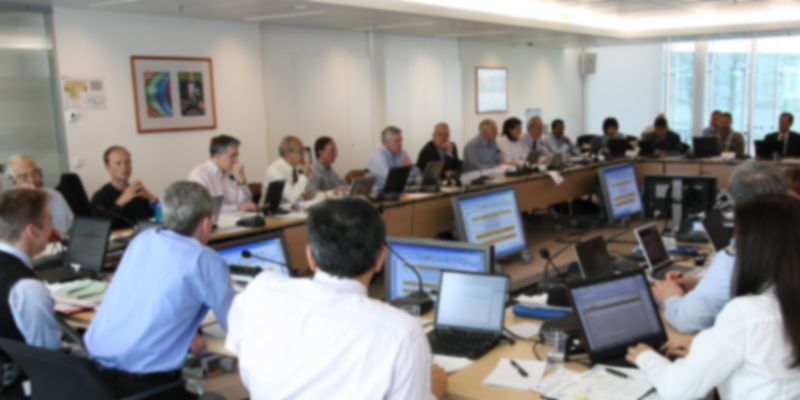IAS International Representative Dr. George Anastasopoulos and IAS Assessor Natalya Roshka, both active members of the International Organization for Standardization (ISO) Technical Committee TC176/SC2 on Quality Systems, attended the committee meeting on February 16-20 in Vilnius, Lithuania, where the draft International Standard for quality management, ISO FDIS 9001:2015, was finalized. Dr. Anastasopoulos reported that the finalized FDIS can now move forward for editorial changes and translation into official ISO language and balloting by July 1. Publication of ISO 9001:2015 is planned for September.
The main work performed by TC176/SC2 during the Vilnius meeting is summarized as follows:
|
- Review of the comments that were not finalized during the previous Galway, Ireland, meeting held in November 2014.
- It was agreed that final editing of the DIS and FDIS will be completed under the conditions that (a) no new requirements would be added to the standard, (b) limiting the performed work in response to the submitted comments, and (c) assessing the results of the recently concluded validation process.
|
The main meeting outcomes included:
|
- Confirmation that the different levels of "Control of documented information" will be expressed through the verbs: "maintain" and "retain";
- The definition of risk changed from the one used in ISO 31000, i.e., "Risk = effect of uncertainty on objectives" to "Risk = effect of uncertainty";
- Agreed that "Opportunity" is not always part of the risk but it can exist independently, so the commonly used expression in the new standard, "risk and opportunity" was confirmed;
- It was decided the term "outcome" was not to be used, but only "result" and "output";
- The previous decision at the Galway meeting to use "performance of QMS" instead of "quality performance" was confirmed;
- The terms "process environment" and "organizational knowledge" were clarified;
- The term "as applicable" was avoided;
- It was decided to reduce use of term "innovation" throughout the standard;
- The QMS scope requirement was re-formulated regarding acceptable exclusions;
- The introduction to the standard was re-formulated and re-structured;
- Software specific requirements were excluded from the standard in favor of the term "measuring equipment" (which includes software);
- It was voted to proceed to the FDIS stage.
|
The International Organization for Standardization (ISO), headquartered in Switzerland, is the world's largest developer of voluntary International Standards. International Standards provide state-of-the-art specifications for products, services and good practices, helping to make industry more efficient and effective. Developed through global consensus, standards also help to break down barriers to international trade.
Note: The IAF MLA members at the recent IAF/ILAC Vancouver, October 2014, meeting had agreed on a resolution that the transition period for ISO 9001:2015 will be three years from the date of publication and all initial accredited certifications shall be issued to ISO 9001:2015 starting no later than 18 months after the new standard is published. |




